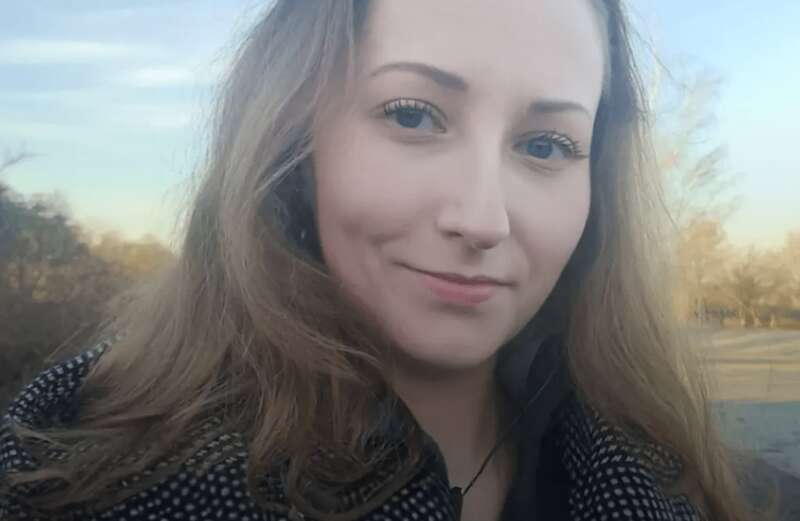A PHYSICALLY healthy woman has decided to get euthanised after suffering from crippling depression.
Zoraya ter Beek, 28, from Twente, Netherlands, is scheduled to die in May after being told her condition will "never get better".



Zoraya once aspired to become a psychiatrist but couldn't finish her studies because she was struggling with depression and autism.
For ten long years, she tried all possible solutions from therapy to medications to improve her condition.
Euthanasia has been legal in The Netherlands since 2002 - but remains illegal in the UK.
 Arsenal coach Cuesta, 25, already has Juventus on his CV & speaks six languages
Arsenal coach Cuesta, 25, already has Juventus on his CV & speaks six languages
The highly controversial practice remains a hotly debated topic, with campaigners claiming it frees people from pain but critics warning it could be abused or see people pressured into dying.
Under Dutch law, a patient qualifies for an assisted death after they have exhausted all reasonable treatments and can prove they have "unbearable suffering without prospect of improvement".
Zoraya lost hope for recovery after her psychiatrist told her "there's nothing more" they could do to treat her pain.
"It's never gonna get any better," she claims her doctor told her.
At that moment, Zoraya decided to cut her life short - even if it meant leaving her beloved 40-year-old boyfriend and two cats behind.
She will be administered a sedative and a drug to stop her heart - and has chosen to die at home.
Zoraya's intense struggles saw her start to wear a "do-not-resuscitate" badge around her neck - something which is typically worn by elderly people.
She said: "I don't see it as my soul leaving, but more as myself being freed from life.
"I'm a little afraid of dying, because it's the ultimate unknown.
"We don't really know what's next - or is there nothing? That's the scary part."
 I’m a 41-year-old mum but had acne - my spots were like boils
I’m a 41-year-old mum but had acne - my spots were like boils
Zoraya told the Free Press: "I was always very clear that if it doesn’t get better, I can’t do this anymore."
But she had to wait two-and-a-half years for her request to be approved, and then another six to 12 months to ensure she met all the legal conditions for euthanasia.
During the long waiting time, she said she never doubted her decision, saying if it was rejected, she would "probably do it herself".
Once she had gone through the steps, Zoraya chose the date of her death which falls in May.
She doesn't want any fuss and plans to take her last breath on a sofa in her living room, with no music and just her boyfriend by her side.
She explained: "The doctor really takes her time. It is not that they walk in and say: lay down please.
"Most of the time it is first a cup of coffee to settle the nerves and create a soft atmosphere.
“Then she asks if I am ready. I will take my place on the couch. She will once again ask if I am sure, and she will start up the procedure and wish me a good journey.
"Or, in my case, a nice nap, because I hate it if people say, ‘Safe journey.’ I’m not going anywhere."
Zoraya - who doesn't have much family - said there won't be any funeral.
Instead, she wishes to be cremated after her death and already picked "a nice spot in the woods" where her ashes will be scattered.
As Zoraya approaches her last day, she told rtl nieuws: "I don't want to die, but I can't live.
"Then it's a choice between growing old, sick and with a lot of misery, or honouring myself and saying: I'm quitting."
Euthanasia is usually a last resort for terminally ill patients but has recently become a "default option" for people with mental health issues.
More people are turning to euthanasia for a legal way to end their suffering as they struggle with depression or anxiety - made worse by economic uncertainty and social media.
In 2017, out of 6,585 deaths from euthanasia in the Netherlands, 84 were on the grounds of psychiatric suffering.
But the approval procedure for psychiatric petitions can take years and only approximately 10 per cent of applications are granted.
Critics blasted the practice for encouraging people like Zoraya to kill themselves rather than live in pain, which they claim can be treated with ongoing care.
Stef Groenewoud, a healthcare ethicist at Theological University Kampen, told the Free Press: “I see the phenomenon especially in people with psychiatric diseases, and especially young people with psychiatric disorders, where the healthcare professional seems to give up on them more easily than before.”
Critics blame "suicide contagion" on a social media glamorisation of suicide and radical right-to-die activists who advocate for freedom to kill ourselves when our lives are "complete".
But some doctors believe euthanasia is an acceptable alternative as they view suicidal patients as people with terminal illness.
Kit Vanmechelen told BBC: "I've treated patients that I knew were going to commit suicide. So to have euthanasia as an alternative makes me very grateful we have a law.
"The ones I know will commit suicide are terminal in my opinion. And I don't want to abandon my patients who are not able to go on with their lives."
After her story was published in the Free Press, Zoraya took to Twitter to criticise the journalist and announced that she would be stepping away from social media ahead of her passing.
“It was an honor for me to provide insights to people who were open to learning something,” she posted.



































